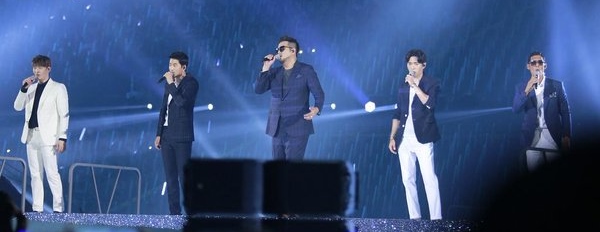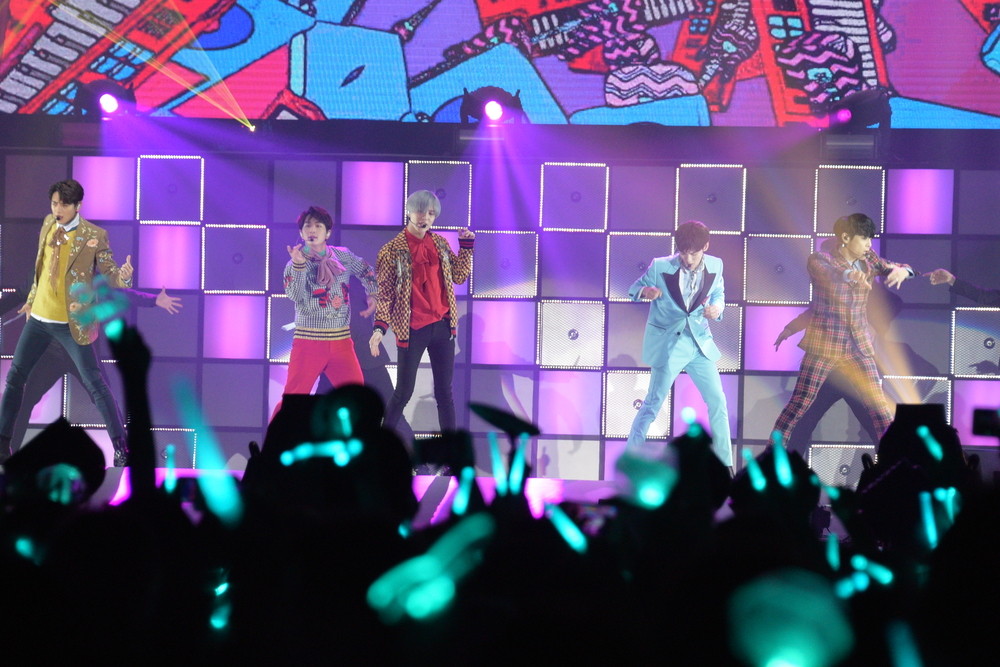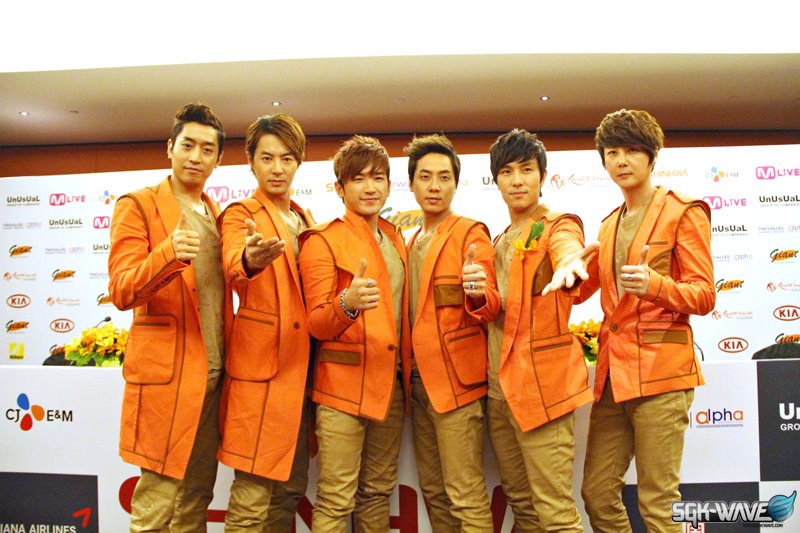Last Updated on September 5, 2023 by Eden
Among kpop fans, there’s always a lot of debate about who paved the way. And no discussion of who the biggest influencers are is complete without mentioning 1st generation kpop groups.
These were the first k-pop groups to arrive on the scene, setting the stage for future kpop generations to emerge. The first gen of k-pop has been followed by the second generation, third generation, and fourth generation. And many kpop fans argue that the fifth generation is already well underway.
Marking the ending point between one generation and the beginning of a new one isn’t always easy. The kpop industry is always evolving and the start of a new generation is usually signified by a notable change in style or sound.
Today, we’re taking a closer look at the first generation kpop groups and solo artists who helped kickstart the Korean wave.

Featured Item: Kpop Journal
Looking for a fun way to keep track of your favorite boy groups or girl groups? Check out this cute kpop journal (download + print or use with Goodnotes!)
Table of Contents
Defining 1st Generation Kpop
The first generation of kpop began in the early 1990s and lasted until 2003 when new groups with a different sound and style started to make their mark.
The first k-pop idol group was Seo Taiji and Boys, a three-member boy band that arrived in 1992. The group’s song “Nan Arayo” (I Know) from its debut album was notable for being one of the first Korean rap songs. One of the group’s members was Yang Hyun-suk, who would later go on to found YG Entertainment.
Seo Taiji and Boys disbanded in 1996 but more groups would soon join the first-gen of k-pop. Some of the most notable boy groups to debut in the first generation included:
- H.O.T. (short for Highfive of Teenagers)
- Sechs Kies
- g.o.d.
- Shinhwa
- DJ Doc
- Fly to the Sky
- Deux
- Turbo
There are also plenty of girl groups that debuted during the first generation as well. One of the earliest was S.E.S., a three-member girl group signed with SM Entertainment.
They’re often referred to as the first k-pop girl group but there were other girl groups active during this time. Some would argue that the actual first girl group was Baby V.O.X., who debuted a few months ahead of S.E.S. Another girl group, Diva, also made their debut prior to S.E.S.
Both groups achieved fame in Asia. But if you’re talking in terms of overall popularity and success, S.E.S. usually takes first place among female acts for being more well-known in South Korea.
Some 1st generation kpop idol groups didn’t fit into the boy group or girl group category exclusively. While they’re less common today, there were actually a lot of coed acts under the first generation k-pop group umbrella. They included:
- Roo’ra
- Two Two
- Uptown
- S#arp
Among soloists who belonged to the first generation of k-pop, there are several recognizable names.
Park Jin-young, founder of JYP Entertainment, debuted in 1994. Rain (Jung Ji-hoon) debuted in 1998 as did BoA (Kwon Bo-ah).
Lee Hyori debuted in 1998 as a member of the girl group Fin. K.L., then re-debuted as a soloist in 2003 after parting ways with her group members.
1st Generation Kpop Influences
In its earliest days, Korean pop music was primarily influenced by Western culture and trends. In the early 1990s, the global stage was dominated mainly by American boy bands. Hip-hop was also gaining ground and carving out its own space in the entertainment industry.
Seo Taiji and Boys introduced a new sound that blended Western-style pop music with hip hop. That set the tone for groups that followed, in terms of the concepts they adopted and the type of music they produced.
When H.O.T. came along, they took cues from both American boy groups and Japanese idols. This was a precursor to some of the experimental groups that followed.

Western music continues to influence the k-pop industry but the sound has changed a lot since 1st generation kpop groups made their debut. That evolution has helped bring kpop into the main stream music world to great success.
For example, Wonder Girls became the first female group and kpop artist overall to enter the Billboard chart with “Nobody” in 2009. In more recent years, it’s become increasingly common for kpop bands to enter the charts thanks to online streaming and huge album sales. And lots of kpop groups are meeting their fans in person through world tours.
Related post: Where to Buy Kpop Concert Tickets
When Did the 1st Generation of Kpop End?
The first gen of k-pop’s ending is usually dated to 2003, as new groups began debuting. The second generation of kpop lasted from 2003 to 2013 and saw dance music and different concepts replace the hip-hop-infused first gen style.
Some of the biggest names in the history of k-pop debuted in the early 2000s and following years, including:
- Big Bang
- 2NE1
- Super Junior
- TVXQ
- Wonder Girls
- miss A
- 2PM and 2AM
- SHINee
- Sister
- Kara
- SNSD (Girls Generation)
- f(x)
- Infinite
- T-ARA
- Brown Eyed Girls
- Girls Day
- Epik High
Several of these groups have disbanded but others remain active, even throughout challenging circumstances.
For example, despite the devastating loss of Kim Jong-hyun, SHINee has endured thanks to the everlasting love and support of their fans. The group released “Don’t Call Me”, its first album as a four-member group, in 2021 followed by “Hard” in 2023.

The second generation is when kpop really began to explode and take over the entire country. And that helped to set the stage for the third-generation of groups to redefine the music industry even further. The 3rd gen in turn has influenced the 4th gen and now the 5th generation of artists.
Where Are 1st Generation Kpop Idols Now?
The first generation of kpop came to an end two decades ago, but there are plenty of older idols who are still active in the industry. Shinhwa, for instance, continues to make music with all of the original members.
Some former idols have started their own entertainment companies. First gen idols who have gone on to run their own companies include:
- Yang Hyun-suk (YG Entertainment)
- Park Jin-young (JYP Entertainment)
- Rain (R.A.I.N. Company)
- Jang Woo-hyuk (WH Entertainment)
Others have moved into acting. Kpop idols turned actors include:
- Fin. K.L. member Ock Joo-hyun, who’s pursued an impressive career in musical theater
- Lee Hee-jin, a former member of Baby V.O.X.
- Sung Yu-ri, also formerly of Fin. K.L.
- Lee Jin, also of Fin. K.L.
- Rain
Some first generation kpop idols have remained in the music scene, either pursuing solo careers, writing songs for other artists, joining other groups, or producing.
Sech Kies member Eun Ji-won, for instance, has seen no real stop to his active years as he’s done solo projects, acted, and appeared on variety shows. BoA remains active as a soloist and member of Got the Beat. She also handled the arrangement for Aespa’s cover of the S.E.S. hit “Dreams Come True”.
Unfortunately, some 1st generation kpop artists have encountered legal troubles in more recent years.
Former Seo Taiji and Boys member Lee Juno was sentenced to prison in 2017 for fraud and indecent assault. In 2022, former H.O.T. member Jang Woo-hyuk was accused of violence in the workplace by former employees and trainees.
Jang Woo-hyuk sued the employee for defamation. A police investigation found that the employee who made the claims was not lying but the defamation case is still pending.
Final Thoughts
The first generation of kpop may be over but its legacy endures. And it’s fun to take a trip down memory lane to see just how far Korean pop music has come. With the 5th generation already underway, it’s exciting to think about where kpop music might be headed next.
And if you want to learn more about Korean music history, check back for our deep dive into the second generation of kpop!
Save 10% in the Cute Frog Creations shop when you join our email list!
And get the latest blog posts + updates delivered to your inbox!



2 thoughts on “1st Generation Kpop: A Guide to First Gen K-pop Groups”